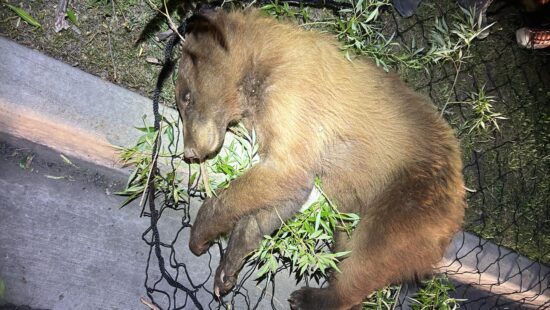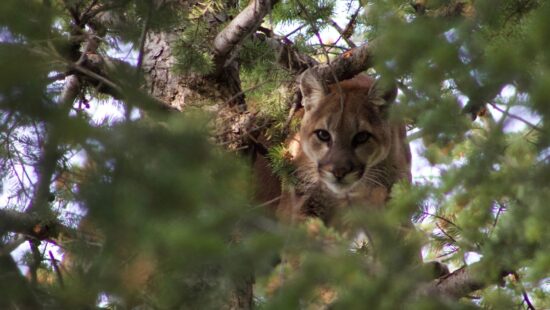Wildlife
DWR urges public to not ‘ditch a fish’ after finding walleye at Strawberry Reservoir

Strawberry Reservoir. Photo: Courtesy of the Utah Division of Wildlife Resources
In Utah, transferring live fish from one body of water to another, keeping them alive as pets at home, or disposing of unwanted aquarium fish into a waterbody is illegal
WASATCH COUNTY, Utah – The Utah Division of Wildlife Resources (DWR) is reiterating to the public that introducing new fish species into water bodies is both illegal and detrimental, emphasizing this point after a walleye, released unlawfully, was caught in Strawberry Reservoir late last year.
The DWR was contacted by an angler on Dec. 21 who reported catching a walleye while fishing at the Strawberry Reservoir.
The DWR confirmed the report, and believes that someone illegally introduced the walleye into the reservoir. Only one walleye has been reported so far.
“It is very expensive and takes a very long time – often requiring rotenone treatments that kill all the fish – to restore a waterbody after fish have been illegally introduced,” said Trina Hedrick, DWR sportfish coordinator. “We are planning to begin extensive monitoring of the fishery in the spring, looking for walleye in potential spawning locations when they would likely be congregating.”
Strawberry Reservoir, recognized as a Blue Ribbon Fishery, offers some of Utah’s finest fishing experiences, featuring the annual stocking of cutthroat trout, rainbow trout, and Kokanee salmon by the DWR.
In Utah, transferring live fish from one body of water to another or keeping them alive as pets at home is against the law. Additionally, disposing of unwanted aquarium fish into a waterbody is also prohibited, and engaging in any of these activities may lead to a class A misdemeanor charge.
Illegally introducing fish into a pond, stream, or lake can detrimentally affect the ecosystem in various ways. These illicitly introduced species may pose a threat by preying on and outcompeting native and endangered fish, as well as sportfish.
The introduction of non-native fish may also bring diseases and decline water quality, negatively impacting the overall health of the aquatic environment.
“We don’t know whether any other walleye are currently at Strawberry Reservoir, so we are asking anglers to look for them where they would naturally be congregating and to report any walleye to us,” Hedrick said. “Spring surveys and assistance from the anglers should help us understand the extent of the problem better. Please help our native fish species and maintain quality fishing in Utah by never dumping a fish or being a ‘bucket biologist.'”
Anglers who catch any additional walleye at Strawberry Reservoir should immediately kill the fish and report it to the DWR at 800-662-3337. Anglers should include a photo of the fish and the GPS coordinates of where it was caught.
Sportsmen for Fish and Wildlife are also offering a reward for information leading to the conviction of whoever illegally introduced walleye into Strawberry Reservoir.
Utahns are encouraged to call 800-662-3337 to report any invasive fish they find, or if they see anyone illegally introducing fish into a waterbody or trying to relocate live fish. Utahns can also contact their nearest DWR office if they have an unwanted fish or if they have concerns about a fishery in Utah.


















